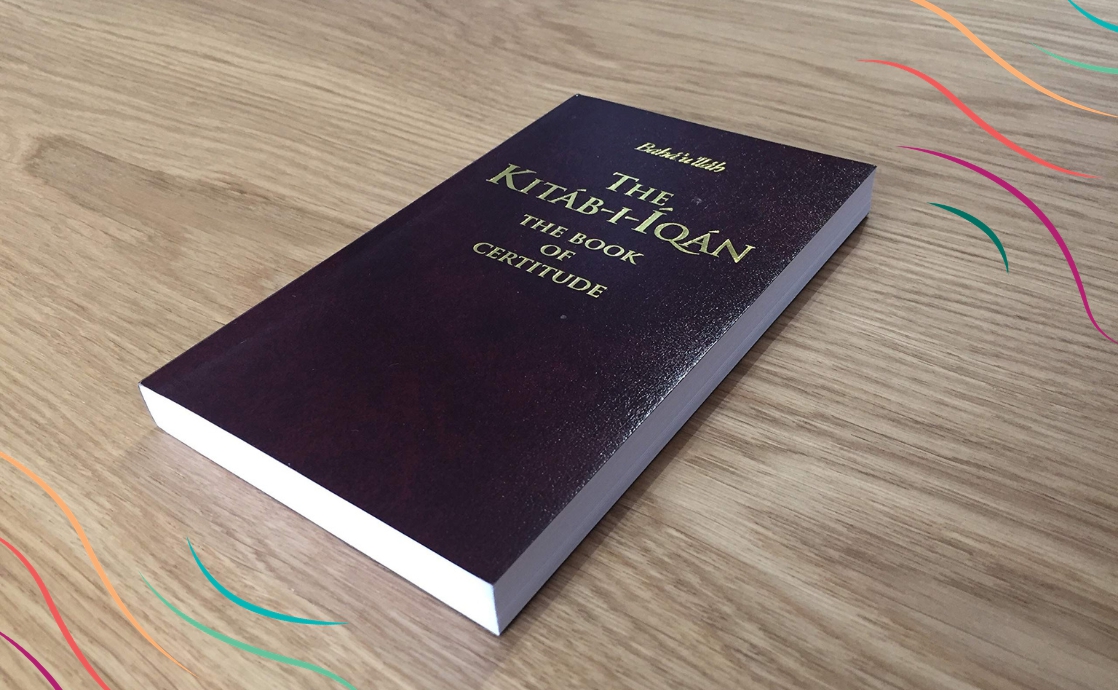The views expressed in our content reflect individual perspectives and do not represent the authoritative views of the Baha'i Faith.
Did you know that the single most important Baha’i scripture, as far as fundamental Baha’i teachings are concerned, is The Book of Certitude?
Only one other book, The Kitab-i-Aqdas or The Most Holy Book — which sets forth Baha’i moral, ethical, and social laws — has a greater overall importance among Baha’i scriptures. The Book of Certitude or Kitab-i-Iqan — a work revealed primarily in Persian by Baha’u’llah, the prophet and founder of the Baha’i Faith, in January, 1861 — is a holy book about holy books. Not only that, but the Iqan claims to contain the essence of the wisdom enshrined in all of the holy books of the world’s religions.
“In fact, all the Scriptures and the mysteries thereof are condensed into this brief account,” Baha’u’llah proclaimed. “So much so, that were a person to ponder it a while in his heart, he would discover from all that hath been said the mysteries of the Words of God, and would apprehend the meaning of whatever hath been manifested by that ideal King.” As you’ll see further on in this article, The Book of Certitude has been called, by Baha’u’llah himself, the “cynosure of all books.”
The Baha’i writings offer humanity many extraordinary and remarkable statements. Just contemplating those statements can lead to astonishment, wonder, and the realization of great beauty.
Of course, like beauty, the profound nature of these revelations is in the eye of the beholder, to the extent that a receptive reader can perceive the depth and meaning of any given passage.
RELATED: How a Short Baha’i Book Changed My Spiritual Life
In other words, like music or art appreciation, readers must become attuned to the beauty and majesty of Baha’u’llah’s expressions of wisdom and spiritual insight. Baha’u’llah’s superlative truth claims rank among the most profound pronouncements. Here’s one of those claims, which Baha’u’llah wrote on January 20, 1882, later published in the book Tablets of Baha’u’llah:
The Tongue of Wisdom proclaimeth: He that hath Me not is bereft of all things. Turn ye away from all that is on earth and seek none else but Me. I am the Sun of Wisdom and the Ocean of Knowledge. I cheer the faint and revive the dead. I am the guiding Light that illumineth the way. I am the royal Falcon on the arm of the Almighty. I unfold the drooping wings of every broken bird and start it on its flight.
In this beautiful, soul-stirring and dramatic passage, Baha’u’llah identified himself as the voice of wisdom personified – as a messenger from the Creator. In its own way, this profound truth claim and prophetic declaration of paramount importance identifies Baha’u’llah as one of the supreme sources of wisdom and spiritual knowledge, a prophet and manifestation like Christ, Buddha, Muhammad, and Moses, who bring life to the soul and guidance along the spiritual path.
Like all truth claims, this one has to be taken on faith in a subjective sense, since it cannot be proven or disproven empirically. However – to verify such a potent claim, the Baha’i teachings advise us to independently investigate its truth by considering Baha’u’llah’s life and character, by contemplating the principles of his Faith, and by reading his writings.
Baha’u’llah has also set forth a superlative truth claim regarding one of his most celebrated books, known as the Book of Certitude (Persian: Kitab-i-Iqan), in this striking declaration, revealed that same year, on July 1, 1882:
Regarding their statement that “our faith and religion is superior to every other”, by this is meant such Prophets as have appeared before them. Viewed from one perspective these holy Souls are one: the first among them is the same as the last, and the last is the same as the first. All have proceeded from God, unto Him have they summoned all men, and unto Him have they returned. This theme hath been set forth in the Book of Certitude, which is indeed the cynosure of all books, and which streamed from the Pen of Glory in the early years of this Most Great Revelation. Blessed is he that hath beheld it and pondered its contents for the love of God, the Lord of creation.
In this passage, The Book of Certitude is acclaimed as the “Cynosure of all Books” or, put more simply, the “Prince of Books” (in Persian, sayyid-i-kutub).
The Oxford English Dictionary defines “cynosure,” in part, as:
figurative. a. Something that serves for guidance or direction; a ‘guiding star’. b. Something that attracts attention by its brilliancy or beauty; a centre of attraction, interest, or admiration.
A cynosure, then, is something that not only attracts our attention and elicits our admiration — indeed, commands respect in a good way — but also serves as a source of enlightenment, guiding the way forward. A cynosure serves as a source of illumination and a singular thing of beauty. Such is the case with Baha’u’llah’s Book of Certitude.
RELATED: What Baha’i Books Should I Read?
Note the blessing Baha’u’llah mentions in the above quote — what Baha’i scholar Stephen Lambden rightly calls a “beatitude” — which promises God’s favor and divine enlightenment from perusing the book itself and earnestly pondering its contents, thereby rewarding serious study of and engaged meditation on the contents of the book itself.
Shoghi Effendi, the Guardian of the Baha’i Faith, translated two passages from a lengthy tablet in the compendium, or anthology, of Baha’u’llah’s writings known as Gleanings from the Writings of Baha’u’llah:
Had it been in my power, I would have, under no circumstances, consented to distinguish myself amongst men, for the Name I bear utterly disdaineth to associate itself with this generation whose tongues are sullied and whose hearts are false. And whenever I chose to hold my peace and be still, lo, the voice of the Holy Ghost, standing on my right hand, aroused me, and the Supreme Spirit appeared before my face, and Gabriel overshadowed me, and the Spirit of Glory stirred within my bosom, bidding me arise and break my silence. If your hearing be purged and your ears be attentive, ye will assuredly perceive that every limb of my body, nay all the atoms of my being, proclaim and bear witness to this call: “God, besides Whom is none other God, and He, Whose beauty is now manifest, is the reflection of His glory unto all that are in heaven and on earth.”
In this fascinating and profound autobiographical statement, Baha’u’llah identifies four distinct “spirits” that inspired and actuated him to arise and proclaim the messages of God that have been revealed to him by virtue of his station as the Prophet of God for this day and age:
(1) the “Holy Ghost” (or Holy Spirit);
(2) the “Supreme Spirit”;
(3) the Archangel “Gabriel”; and
(4) the “Spirit of Glory.”
Based on this passage, The Book of Certitude drew its inspiration from the Holy Spirit, from the archangel Gabriel, from the “Supreme Spirit” and from the “Spirit of Glory” — thereby adding to the blessings that Baha’u’llah has promised to those who study and meditate on it. Reading this “Cynosure of all Books” is its own reward.
















Comments
Sign in or create an account
Continue with Googleor